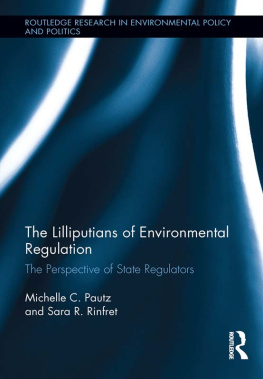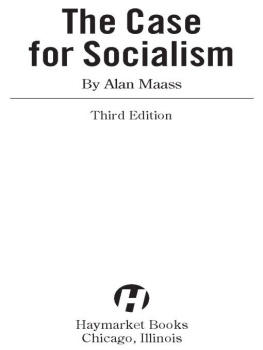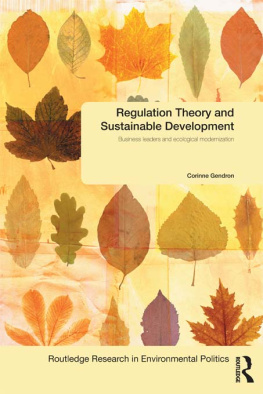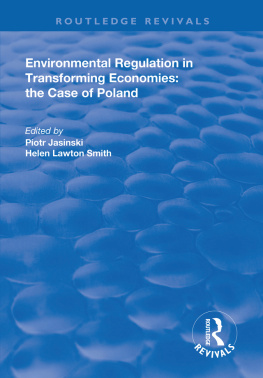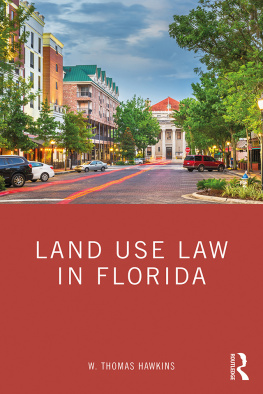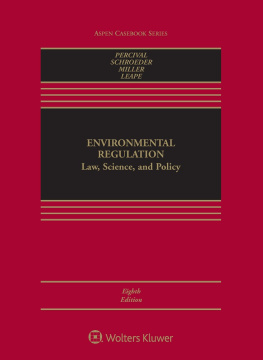Chris G. Pickvance - Local Environmental Regulation in Post-Socialism: A Hungarian Case Study
Here you can read online Chris G. Pickvance - Local Environmental Regulation in Post-Socialism: A Hungarian Case Study full text of the book (entire story) in english for free. Download pdf and epub, get meaning, cover and reviews about this ebook. year: 2019, publisher: Taylor & Francis, genre: Politics. Description of the work, (preface) as well as reviews are available. Best literature library LitArk.com created for fans of good reading and offers a wide selection of genres:
Romance novel
Science fiction
Adventure
Detective
Science
History
Home and family
Prose
Art
Politics
Computer
Non-fiction
Religion
Business
Children
Humor
Choose a favorite category and find really read worthwhile books. Enjoy immersion in the world of imagination, feel the emotions of the characters or learn something new for yourself, make an fascinating discovery.

- Book:Local Environmental Regulation in Post-Socialism: A Hungarian Case Study
- Author:
- Publisher:Taylor & Francis
- Genre:
- Year:2019
- Rating:5 / 5
- Favourites:Add to favourites
- Your mark:
- 100
- 1
- 2
- 3
- 4
- 5
Local Environmental Regulation in Post-Socialism: A Hungarian Case Study: summary, description and annotation
We offer to read an annotation, description, summary or preface (depends on what the author of the book "Local Environmental Regulation in Post-Socialism: A Hungarian Case Study" wrote himself). If you haven't found the necessary information about the book — write in the comments, we will try to find it.
Local Environmental Regulation in Post-Socialism: A Hungarian Case Study — read online for free the complete book (whole text) full work
Below is the text of the book, divided by pages. System saving the place of the last page read, allows you to conveniently read the book "Local Environmental Regulation in Post-Socialism: A Hungarian Case Study" online for free, without having to search again every time where you left off. Put a bookmark, and you can go to the page where you finished reading at any time.
Font size:
Interval:
Bookmark:

University of Kent

2 Park Square, Milton Park, Abingdon, Oxon OX14 4RN
711 Third Avenue, New York, NY 10017, USA
Product or corporate names may be trademarks or registered trademarks, and are used only for identification and explanation without intent to infringe.
The publisher has gone to great lengths to ensure the quality of this reprint but points out that some imperfections in the original copies may be apparent.
The publisher has made every effort to trace copyright holders and welcomes correspondence from those they have been unable to contact.
ISBN 13:978-1-315-19727-2 (ebk)
School of Social Policy, Sociology and Social Research, University of Kent,
Canterbury.
- a) to provide a picture of some aspects of local-level environmental regulation in one post-socialist country, Hungary;
Font size:
Interval:
Bookmark:
Similar books «Local Environmental Regulation in Post-Socialism: A Hungarian Case Study»
Look at similar books to Local Environmental Regulation in Post-Socialism: A Hungarian Case Study. We have selected literature similar in name and meaning in the hope of providing readers with more options to find new, interesting, not yet read works.
Discussion, reviews of the book Local Environmental Regulation in Post-Socialism: A Hungarian Case Study and just readers' own opinions. Leave your comments, write what you think about the work, its meaning or the main characters. Specify what exactly you liked and what you didn't like, and why you think so.


